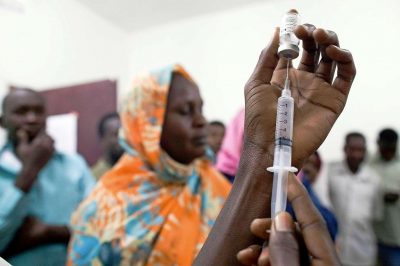By
Gloria Nakiyimba
Uganda has received 714,579 doses of yellow fever vaccine, worth 643,765 US dollars for an emergency reactive mass vaccination campaign in Masaka and Rukungiri districts.
The campaign, scheduled to begin in the second week of May, is targeting a population of 698,850 people, aged six months and above, who will be immunized against yellow fever in the two districts where the outbreak has been confirmed.
An outbreak of yellow fever was first reported in the Southern district of Masaka and South Western district of Rukungiri in January this year with 30 suspected cases and 11 deaths.
“The importance of carrying out a massive vaccination campaign is to interrupt the transmission. With this exercise, the affected population will be able to achieve immunity against yellow fever,” said Ms Aida Girma, UNICEF representative in Uganda.
Catherine Ntabadde Makumbi, UNICEF communications specialist, explains that the GAVI Alliance is paying for the vaccines after a request from the ministry of Health was approved through the International Coordination Group on vaccines.
United Nations Children’s Fund (UNICEF), World Health Organization (WHO), Médecins Sans Frontières (MSF), and the International Federation of Red Cross and Red Crescent Societies (IFRC) are members of the group.
According to WHO, yellow fever is a viral infection transmitted to humans through a bite from a mosquito carrying the yellow fever virus.
It causes fever, yellowing of the eyes, and bleeding from any part of the body. Patients with yellow fever also suffer from jaundice. Other symptoms are abdominal pain, diarrhea, vomiting and loss of appetite.
Many of the patients die within 10 to 14 days.
Information from Center for Disease control, (CDC), states there is no specific treatment for yellow fever but care is based on symptoms.
Health workers can only offer supportive care to treat dehydration and fever. Vaccination against yellow fever is ranked as the safest way to prevent yellow fever.
“Vaccination is the major preventive measure against the disease because it is highly effective,” said Dr Wondimagegnehu Alemu, WHO country representative in Uganda.
Other preventive measures include mosquito control, personal protection; wearing long sleeve shirts or blouses, trousers, long dresses and long skirts to avoid bites.



No Comments Yet!
You can be first to comment this post!